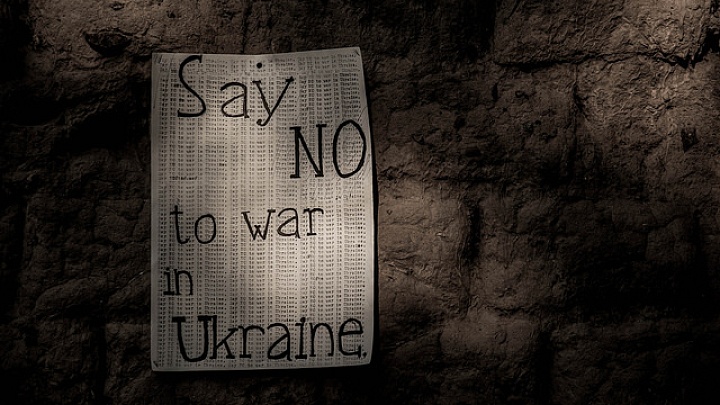
What is our red line in Ukraine? I can’t seem to find any mention of one in any of the president’s or his senior staff’s statements. Closest thing I could find was his former defense secretary telling Der Spiegel, “At some point, we are going to have to draw a line. Based on all kinds of historical lessons, its better to draw that line earlier rather than later.” That’s sound advice. So why isn’t anybody in the administration listening? All we keep hearing is that there is no military solution to the conflict.
Strangely, as a new military authorization on the use of force wends its way through Congress, we never hear that cliché come up. Nobody says about ISIS: There is no military solution, only a political one. They’d be toast, come negative ad time. We seem to treat terrorism as this existential threat that must be met with a military anvil. We dont negotiate with terror. But strangely when it comes to threats posed by states like Russia, we turn into pools of jelly. Only a political solution can solve these crises. There is no military solution, we’re told time and again. Never mind the empirical data that calls this into question (negotiated settlements in stalemated civil wars, though more frequent than they once were, are still rare). Never mind the fact that we’re on our second Minsk agreement to supposedly arrest the fighting, when rebels in Luhansk are salivating to fight more. This policy of ours is puzzling. Why are we forbidden from negotiating with, say, Houthis in Yemen, but we treat Vladimir Putin, who has backed rebels in Ukraine that literally shot a passenger airliner out of the sky and went unpunished, as if he were the Queen of England. Isn’t that terror?
We approach groups like ISIS with a shoot-first policy of shock-and-awe. Yet, when it comes to Russia, we take off the gloves. We prefer “strategic patience” and incrementalism.
We are about to double down on the use of force against ISIS, which at its peak consists of something like 35,000 adherents sprawled across various franchises spanning the MENA region, and meanwhile we are basically giving in to the brutes of this world who can hide behind the façade of sovereign statehood. I don’t get it. I’m not saying that we should be sitting down at the table with al-Baghdadi and breaking bread. But I also don’t think we should be treating Putin as some honest broker in either Syria or Ukraine, who just wants peace. Russia still denies its forces or arms are even in Ukraine, and yet we are supposed to treat this kind of earth-is-flat deniability as an entry point for negotiations. No wonder that the midnight ceasefire has already been violated several times (Recall that even last September’s Minsk agreement held for a few days before completely collapsing under Russian pressure).
When all is said and done and historians look back at his era, they will scratch their heads at our diabolical foreign policy. Here we are about as hawkish as they come when a threat derives from a violent non-state actor like ISIS, which may pose a real threat to our allies in the region, as well as to U.S. residual forces, advisers, and aid workers there, but poses practically zero threat to our homeland (not to mention that our track record at using military force to vanquish groups like this has been abysmal at best). Yet when we are faced with the literal rewriting of international norms and borders, we crawl into a little ball, as if we had no military deterrent, no Air Force, no intelligence, no preparations or road maps for what to do were Russia to eyeball its expatriates in the Baltics or Crimea as a pretext for annexation. Why is it when the threat comes from a fellow state like Russia, we turn into Jane Fonda and talk about war as if it were this abstract thing that only rogue states d
